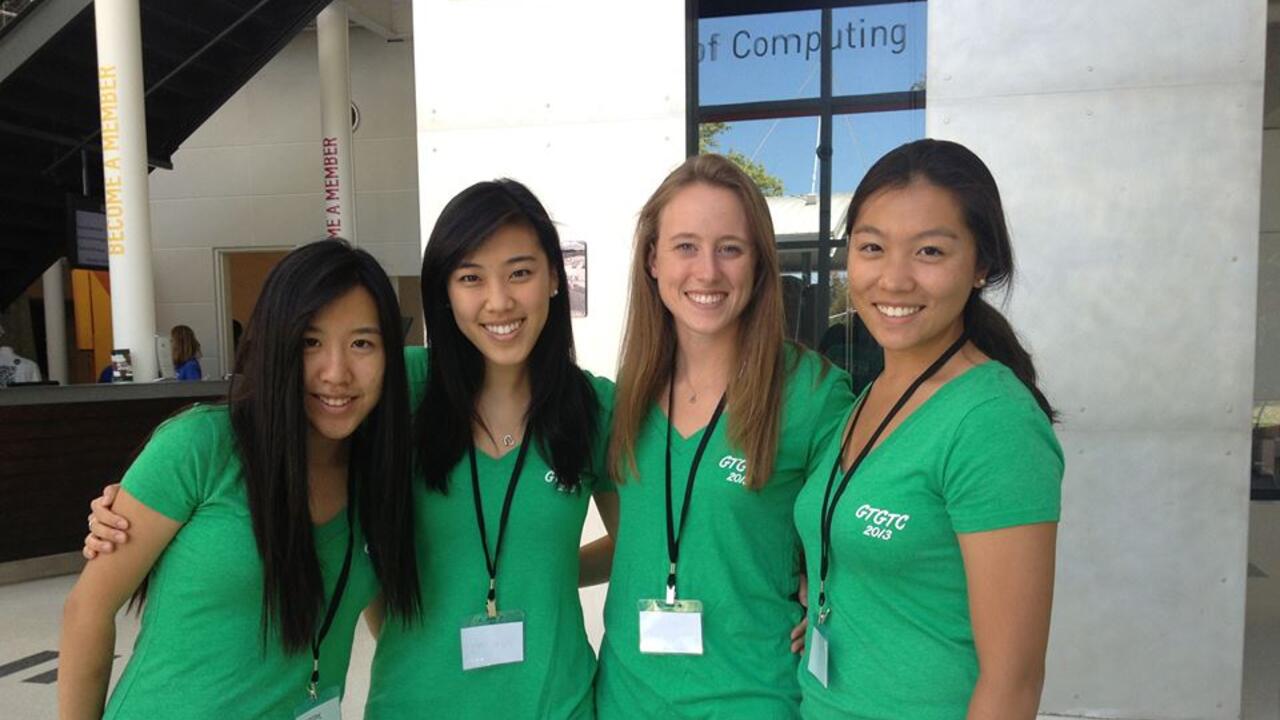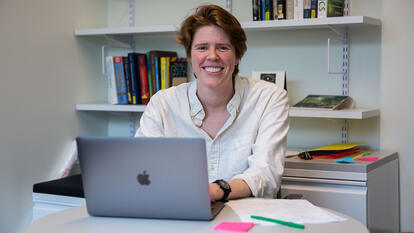Heidi Wang ’12 Explains the Powerful Idea of Turning Nothing Into Something

Heidi Wang ’12 has been asked so many times about how she started Girls Teaching Girls to Code (GTGTC) that she wrote an article about the experience, “Turning Nothing Into Something,” which recently appeared on LinkedIn.
In the article, Wang, who had majored in computer science and minored in economics, wrote that she came up with the concept for GTGTC in the summer of 2012, when she was interning as a software engineer at a small startup in San Francisco before starting a master’s program in computer science at Stanford University. On the first day of her internship, Wang attended an all-staff meeting and noticed she was the only woman in the room—an experience that stood in sharp contrast to what she had experienced at Wellesley.
Wang began to think about how to address that gender imbalance. She brainstormed with three fellow female classmates at Stanford about how they could teach high school girls about computer science, and soon GTGTC was born. But there’s a vast difference between having an idea and bringing it to fruition. The latter required three key steps, Wang wrote: assembling an all-star team, dreaming up an overly ambitious goal, and being scrappy and creative.
Using a cellphone, Wang filmed a proposal for a one-day code camp that would serve 120 high school girls, which they submitted to an online contest. A few weeks later, they were awarded a $2,500 grant to implement their idea.
They collected the names and emails of computer science and math teachers from all of the high schools within a 30-mile radius and started cold-emailing them to ask for help with outreach. Before long, GTGTC had more sign ups than they could accommodate and a rapidly growing wait list.
When they realized their seed money would not cover all of the camp’s expenses, they approached local businesses for support, not giving up despite many rejections. “Time and time again, where some rational people might have said, ‘That’s impossible,’ we kept saying, ‘Let’s try and make it work,’” she wrote. “Our audacious goals really motivated us to work harder, and although we did have to compromise sometimes, we were more often surprised by what we actually could pull together.”
The result of their efforts was a successful camp and enough extra funding that they could offer a full spectrum of classes—from web design to computational biology to cryptography—and host several smaller events as well. Since then, more than 1,000 girls have participated in GTGTC’s activities, and the group continues to host the code camp and classes as well as workshops, puzzle hunts, and company tours.
“This idea of ‘turning nothing into something’ is powerful,” said Wang in an email interview. “It’s an exercise in learning how to harness your passions and persist in the face of challenges.”
For those who don’t think they can start their own venture, Wang suggests taking a series of increasingly larger risks. “Orit Shaer, my professor and mentor at Wellesley, really encouraged me to step outside of my comfort zone. When I did so, I discovered that I was capable of more than I thought I was, and that really built up a lot of my self-confidence,” she said.
Wang also recommends that women develop and maintain professional connections, beginning when they are in college. “At Wellesley, I was constantly inspired by and encouraged by my friends and peers. Words can’t really describe the value of having that support network behind you,” she said.
Flexibility is another essential attribute, said Wang, who expected to work in software engineering, but now does product management for LinkedIn, where she builds new features that improve the experience for and deliver more value to LinkedIn users. “In my career so far I’ve learned how valuable a growth mindset can be. You can achieve so much more when you put in a relentless effort to learn something new every day, to get better at something every day,” she said.



